Seán MacDiarmada is less well known now than some of the other leaders of the 1916 Easter Rising but at the time he was hugely popular and very influential in nationalist circles. He travelled all across Ireland promoting the nationalist cause and came to believe that he and other dedicated republicans might have to offer themselves as martyrs to inspire the country on towards achieving independence.
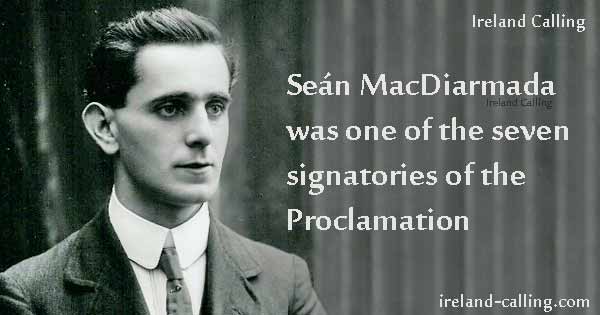
He was one of the seven signatories of the Proclamation of the Irish Republic and a member of the Provisional Government. He is often referred to by the anglicised version of his name, Sean MacDermott, but he always used the original Irish version.
MacDiarmada was born into a Fenian family in Corramore, Kiltyclogher in Co Leitrim in 1884. His father had been a Fenian and Leitrim had a strong tradition of supporting the Land League and opposing unfair practices by landlords and the British authorities. MacDiarmada clearly admired his father and was inspired by his nationalist views.
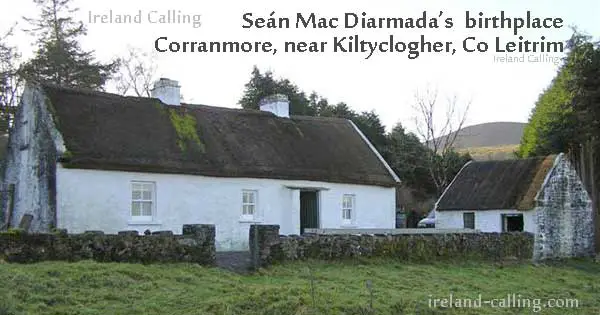
Reflecting on his father’s death he wrote: “It was great to see how hopeful he was of the national cause up to his death, there was something wonderful in the faith of the men of that generation”
As a young man he moved to Scotland in 1900 in search of work and became a gardener and then a tram conductor, but he had clearly inherited some of his father’s nationalist instincts and they did not take long to come to the surface.
He moved to Belfast in 1902 where he was introduced to the Irish Republican Brotherhood in 1906. He became a member and later was appointed to its Supreme Council. He was transferred to Dublin in 1908 where he came to the attention of the veteran Fenian, Tom Clarke, who would later become the first signatory to the Proclamation.
One of the Irish Republican Brotherhood’s main organisers
The two men became firm friends and it’s at this time that MacDiarmada’s career really began to take off. He threw himself into the nationalist cause and became one of the IRB’s best organisers as he travelled across Ireland staging events and driving recruitment. In 1908, he managed the election campaigns for the Sinn Fein candidates in his native Co Leitrim.
He was appointed as manager of the IRB newspaper, Irish Freedom, in 1910. He was afflicted with polio in the same year. It left him with only limited use of the left side of his body and he had to walk with the aid of a stick, but continued his work with the IRB and other nationalist groups.
MacDiarmada had little time for the Irish Parliamentary Party (IPP) led by John Redmond and its efforts to win Home Rule for Ireland. Home Rule would only give Ireland partial self-governance and it would still be a part of the British Empire with the British would still having ultimate control. He believed the true cause of Irish nationalism and independence as advocated by previous iconic nationalists like Wolfe Tone and Robert Emmett had been diluted by the Home Rule campaign.
Like Patrick Pearse, he came to believe that there would have to be a blood sacrifice by idealistic nationalist to inspire the Irish people and stir them out of their slumber. In 1914, at a meeting in Tralee, he said: “Nationalism as known to Tone and Emmet is almost dead in the country and a spurious substitute as taught by the IPP exists… The Irish patriotic spirit will die forever unless a blood sacrifice is made in the next few years. It will be necessary for some of us to offer ourselves as martyrs if nothing better can be done to preserve the national Irish spirit.”
Jailed for opposing recruitment to British Army
Following the outbreak of the First World War, he was jailed for three months under the Defence of the Realm Act after making a fiery speech opposing the recruitment of Irish soldiers to the British Army.
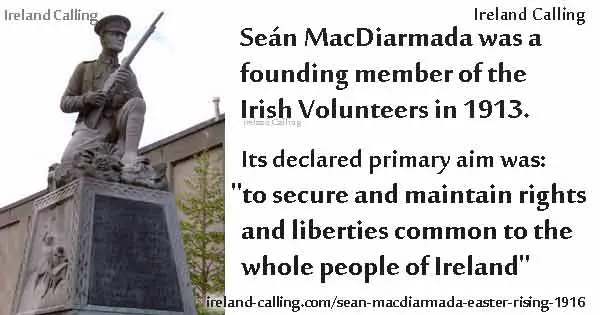
He became one of the founding members of the Irish Volunteers in 1913 and went on to become secretary to the IRB’s Supreme Council. He was also a member of the Military Council and a member of the Provisional Government.
He was in the GPO during the Rising, although his disability due to polio meant he was unable to take much part in the fighting. He was with the rebels as they abandoned the GPO and retreated to nearby buildings on Moore Street to escape the burning GPO, which was coming under heavy bombardment from the British.
Although MacDermott had been one to the most enthusiastic of the Rising leaders for military action, and although he had written that a “blood sacrifice” might be needed to achieve Irish freedom, he was also quick to realise that the battle was lost and agreed with Pearse that surrender was the best way to avoid further deaths among the rebels and the citizens of Dublin. Like Pearse, he tried to reassure the Volunteers that only the leaders of the Rising such as himself would be executed.
‘I die that the Irish nation might live’
MacDiarmada was found guilty of treason by a military court and sentenced to death. He seemed to embrace his impending execution with a curious sense of satisfaction, pleased that the rebels had lit a flame that would lead on to Irish freedom. In a letter he wrote: “I feel happiness the like of which I have never experienced. I die that the Irish nation might live!”
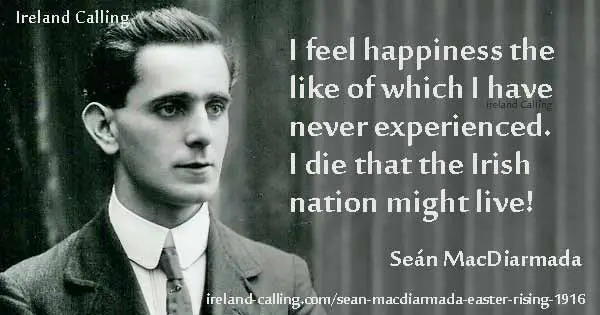
Like Patrick Pearse, he was confident that the Irish people, even those who opposed the Rising, would eventually see why it was needed. He wrote: “I know now what I have always felt, that the Irish nation can never die. Let our present day place hunters condemn our action as they will, posterity will judge us aright from the effects of our actions”
MacDiarmada and was executed by firing squad at Kilmainham Gaol on 12 May 1916. He was 33 years old.
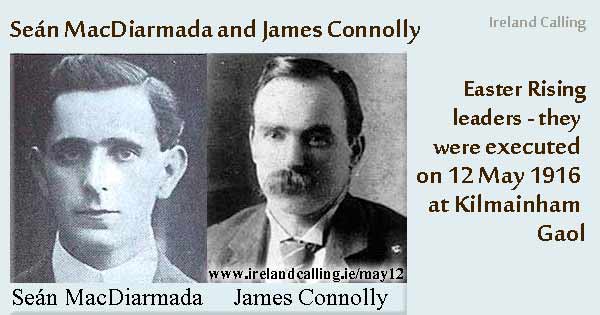
As with other prominent figures in the Easter Rising, he was honoured by having various places and organisations named after him, such as Seán MacDermott Station in Dublin, MaDiarmada Station in Sligo and Páirc Sheáin Mhic Dhiarmada, the GAA stadium in Carrick-on-Shannon.
easter-rising-signatories.html